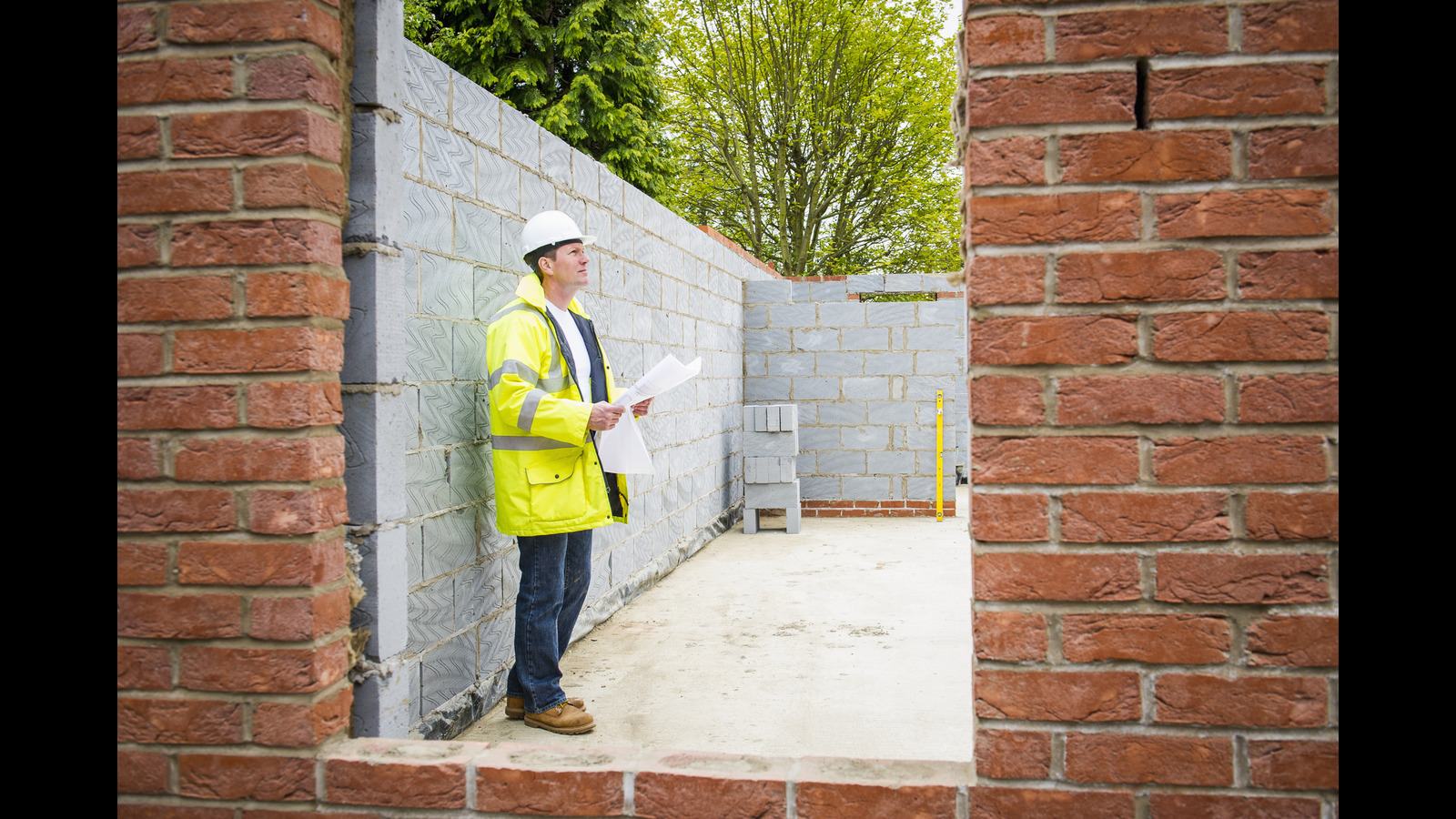I'm a building expert and here's how I choose between private building control and Local Authority Building Control
Discover the differences and whether to opt for private building control or Local Authority Building Control. Plus, the latest changes you need to know

Bring your dream home to life with expert advice, how to guides and design inspiration. Sign up for our newsletter and get two free tickets to a Homebuilding & Renovating Show near you.
You are now subscribed
Your newsletter sign-up was successful
Before starting work, self builders must decide which route they’ll take to secure building regulations approval: through private building control or Local Authority Building Control (LABC)? All building projects, including self build, extension and some renovation projects, must comply with the building regulations, and with the recent implementation of the Building Safety Act, compliance has never been so important.
Of the choices available, the Local Authority Building Control (LABC) has been the mainstay for many years, but registered building control approvers (RBCA), previously known as approved inspectors, offer a compelling alternative. They can potentially provide a more convenient and affordable service to obtaining building regulations compliance on your project.
Here, I explains the key differences between LABC and RBCAs, and my opinion on how to choose the best option for your building project.
What is Local Authority Building Control?
Local Authority Building Control (LABC) is the traditional and perhaps more familiar route for ensuring compliance with building regulations. LABC is, as the name suggests, a building control department that sits within your local authority (or 'county council'). Each local authority has its own building control department and usually employs experienced building inspectors, who know the local area well.
Key benefits of using the LABC may include:
- One of the key advantage is undoubtedly their longevity and local experience. Their local knowledge of site-specific challenges, such as ground conditions, flood risks and site exposures, is a particular benefit. In my experience, when working with LABC, it’s a bit like having a knowledgeable neighbour, albeit one that’s a stickler for rules and not inclined to be flexible.
- They’ll also have well-defined processes, which will make the approval process predictable and reliable.
- As with any public body, the local building control department is publicly accountable, which should mean they act professionally and fairly, with a high degree of transparency (they're fees are typically outlined on local authority websites, for instance) and impartiality.
- What's more, their focus should be entirely on compliance and public safety and free from any commercial interests.
Provided your interests are aligned with LABC – i.e. adherence to regulations – working with them should be straightforward and predictable. Anyone expecting to cut corners, challenge conventions or fast-track the system, will be disappointed, so don’t expect them to show any signs of flexibility or agility.
Whilst experienced builders might find the inflexible bureaucracy of working with LABC restrictive, first-time self builders will be reassured by their well-established procedures and protocols, even though at times it might feel a little one-paced.
Bring your dream home to life with expert advice, how to guides and design inspiration. Sign up for our newsletter and get two free tickets to a Homebuilding & Renovating Show near you.
On a final note, it's worth noting that the LABC have certain powers that private organisations do not. "Only an inspector from your local authority has powers of enforcement, and a registered building control approver must hand the project over to the local authority if there are problems with the project that cannot be resolved informally," says Peter Eade, a former builder, author and self build expert.
What are registered building control approvers (RBCAs)?
Registered building control approver’s (RBCA) – or 'private building control' – are private sector organisations authorised by the Building Safety Regulator to carry out building control functions. Prior to 6 April 2024, RBCAs were known as 'approved inspectors' and were registered with the Construction Industry Council Approved Inspectors Register (CICAIR).
Along with the changes to the registration scheme, building control activities are now regulated and RBCAs must only use registered building inspectors to carry out building control activities
RBCAs are the alternative to LABC, and if the marketing is to be believed, should offer greater flexibility and responsiveness.
It is undoubtedly true that RBCAs, as independent businesses, can tailor their services and whilst this should make them more appealing, it's essential that self builders check that what’s on offer is what their project needs.
How do private building control and Local Authority Building Control compare?
As with LABC, RBCAs are required to employ registered building inspectors to maintain their accreditations and meet the requirements of the building safety act. However, whilst the standard of competency should at least be the same as LABC inspectors, RBCAs have commercial freedom and can set their own fees to give themselves a competitive advantage.
The competitive nature of the private sector encourages RBCAs to innovate too, and continuously improve their services. As a result, we often see RBCAs offering additional products, such as self build warranties, enabling them to discount the cost of providing building control services.
Whilst this should mean that RBCAs fees are competitively priced, as some are potentially commercially conflicted, their impartiality in enforcing regulations could be compromised.
This doesn’t mean that RBCAs will be more lenient in adhering to regulations. Quite the opposite, they could be far more stringent as they limit risks covered by their professional indemnity insurance when also providing warranty products. It’s therefore essential that self builders understand the service they will receive and ensure that it compares favourably with alternative providers.
In comparison, LABC are a not-for-profit organisation and as they’re almost always focused on building regulations compliance, they’ll be little question of commercial conflict.
Furthermore, the rules under which the LABC operate mean they can only charge the actual cost of providing the building control service, so making a profit is out of the question. Provided they can operate efficiently, this should mean that LABC offer great value for money without any commercial complications.
Another important point of difference between LABC and RBCAs is that private businesses are contractually appointed and professional indemnity insurance is a mandatory requirement under the new Building Safety Act. In theory, this should provide self builders with added protection should the RBCA fail to carry out their role properly.
Is the application process the same for both private building control and Local Authority Building Control?
Not quite. When working with the LABC, it’s a simple case of completing the application paperwork and depending on whether you’re using the building notice or full plans application, the building work can get underway.
When working with a RBCA, the process is a little more convoluted and before the RBCA can start any building control work, they must notify the local authority about the project using an ‘initial notice’. The process takes about a week, so adds a little more time before work can get going.
Private building control or Local Authority Building Control: Which is best for your project?
For conventional projects, and inexperienced self builders, LABC is a good place to be. This might be a good route for building regulations for extensions, too, if your plans are relatively straightforward. However, if you’re planning an innovative project using non-traditional designs and innovative materials there may perhaps be resistance and rigidity which some will consider a hinderance.
In comparison, registered building control approvers as private businesses are agile and responsive and offer very competitive prices. However, their desire to make a profit and defend PI insurance exposures, could possibly mean, that the quality of their service is commercially compromised.
If you’re working with an architect or a builder, it’s often a good idea to ask their opinion about the best route to secure building regulations approval. They’ll probably have a preference, based on previous experience, or with their local knowledge might even know the best registered building inspector to work with.
In my opinion, whilst jumping through a few ‘compliance hoops’ might feel like a hassle, the due diligence involved and the knowledge that the project will be safe and compliant is a price worth paying.
My preference of building control provider will therefore always be an organisation that’s reassuringly expensive, who won’t cut corners, and will play their part in making sure my build is safe and fully compliant with the building regulations.
Choosing between private building control or Local Authority Building Control is just one of the decisions you'll need to make when its comes building regulations compliance. Deciding who will undertake building regulations drawings for your project is another key choice to be made.
Some architectural practices may offer this service as part of their package. Other architects or house designers may not provide this service in-house and as such, you will need to approach an architectural technologist or similar to undertake this work for you.
Building Regulations drawings will illustrate to your building control officer how you intend to meet and comply with the different parts of the regulations, such Part M Building Regulations, which covers access and accessibility, and Building Regulations Part L, which in essence looks at the energy efficiency of new and existing homes.
Mark Stevenson is a construction professional with almost 35 years’ experience across housebuilding, timber systems manufacturing and bespoke residential development. He is the owner of Elsworth Projects Ltd, a consultancy specialising in the project management of bespoke self-build homes.
Previously Managing Director of Potton and former Chair of NaCSBA and the Structural Timber Association, Mark is widely recognised for his specialist knowledge of timber construction, land finding and appraisal, and the construction of self-build projects.
Alongside his professional career, Mark is a skilled joiner, hands-on renovator and serial self-builder. He regularly shares his knowledge at Homebuilding & Renovating Shows and coaches self-builders.

